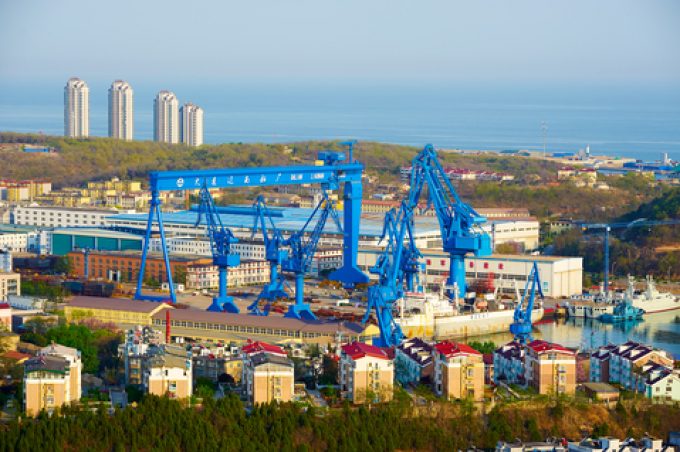DVZ radar: DHL Express awaits the next e-commerce star
It is all about networking

Just hours after Indian prime minister Narendra Modi laid out India’s ambition to become a top-five global shipbuilder within a decade, China premier Xi Jinping lashed out at recent “de-Chinafication”.
While China is the world’s largest shipbuilder and steelmaker by a long way, many businesses have been vocal about re-shoring, near-shoring, or ‘friend-shoring’ operations elsewhere.
And at the opening ceremony of the Beijing Belt and Road forum today, president Xi slammed what he called “ideological confrontation, geopolitical rivalry and bloc politics”.
He said: “We oppose unilateral sanctions, economic coercion, decoupling and delinking. Viewing others’ development as a threat, or taking economic interdependence as a risk, will not make one’s own life better, or speed up one’s own development.”
He added that China would “vigorously integrate ports, shipping and trading services” under the BRI umbrella.
Meanwhile, India’s Mr Modi told the Global Maritime India Summit he believed “a new world order” was “taking shape”.
“We all know that the majority of world trade happens by sea. In the post-Covid era, the world will need reliable and resilient supply chains,” he said, adding that the government had placed “a lot of focus on shipbuilding and repairs”.
He added: “In the next decade, India will become one among the top five shipbuilding and repair nations of the world.”
Recent International Monetary Fund (IMF) projections see economic growth in India outstripping that of China, with western giants like Boeing and Apple, with the overt support of the US government, gradually increasing investment in new factories there.
Meanwhile, this year’s survey by the EU Chamber of Commerce in China reported a record number of respondents, some 64%, reporting that business dealings with China were becoming more difficult.
Recently, Samskip contracted Indian shipyard Cochin to design and construct two hydrogen-powered 730 teu feeder vessels. While facilities at India’s biggest shipyard are tiny, compared with the drydocks of Shanghai, it is thought the yard’s proximity to one of the world’s largest ship-breaking economies could reduce the carbon content of the steel used to build the vessels.
However, with shipbuilding one of the most asset-heavy industries in the world, enormous investment will be needed if India is to make a dent in China’s dominance.
But the world will need all the shipbuilding capacity it can get, far more than currently exists, for construction of greener ships, according to projections by class societies Lloyd’s Register and ClassNK.
Listen to this clip of Lars Jensen, CEO, Vespucci Maritime, talking to The Loadstar Podcast on whether in fact container lines have not over-ordered vessels, but instead taken steps to avoid decarbonisation-driven shipyard capacity shortages in the coming years,
Comment on this article